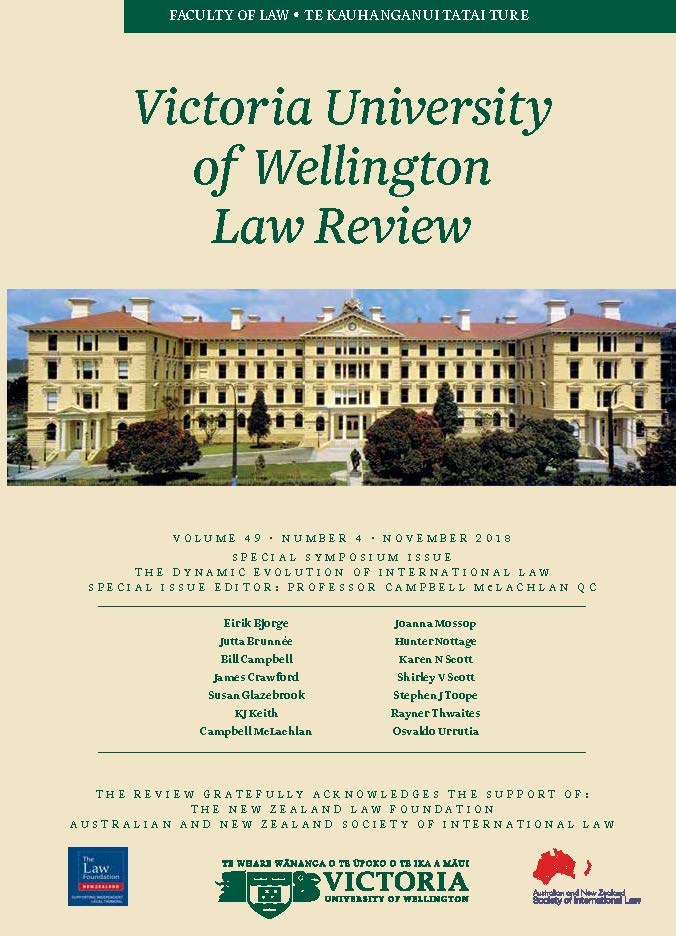International Law and the Practice of Legality: Stability and Change
DOI:
https://doi.org/10.26686/vuwlr.v49i4.5334Abstract
Drawing on the practice-turn in constructivism and in international relations (IR) theory more generally, we argue that a particular approach to managing stability and change is inherent in, and indeed characteristic of, legality and the rule of law in international as in domestic law. Our "interactional law" framework places particular emphasis on what we call the "practice of legality". This concept is central to understanding how law can both enable and constrain state actions, and why international law is a distinctive language of justification and contestation. In turn, the focus on stability and change is helpful because it directly confronts some of the persistent doubts and assumptions about international law, in particular in relation to international politics. Our work is animated by the intuition that the dominant views in IR and international law scholarship underestimate international law's capacity to mediate stability and change, in part because they focus on the surface of law (treaties, statutes and so on) and external factors (interests, enforcement). They neglect the deeper structure of what makes norms "law", and the distinctive practices that account for both its relative stability and its capacity for change.
Downloads
Downloads
Published
How to Cite
Issue
Section
License
Authors retain copyright in their work published in the Victoria University of Wellington Law Review.


